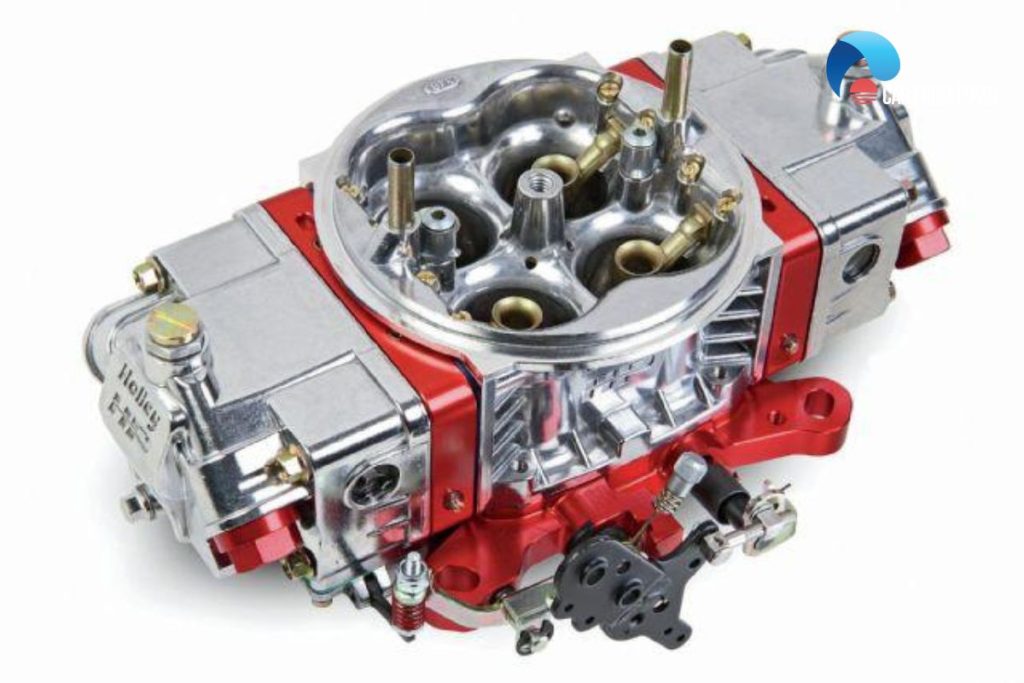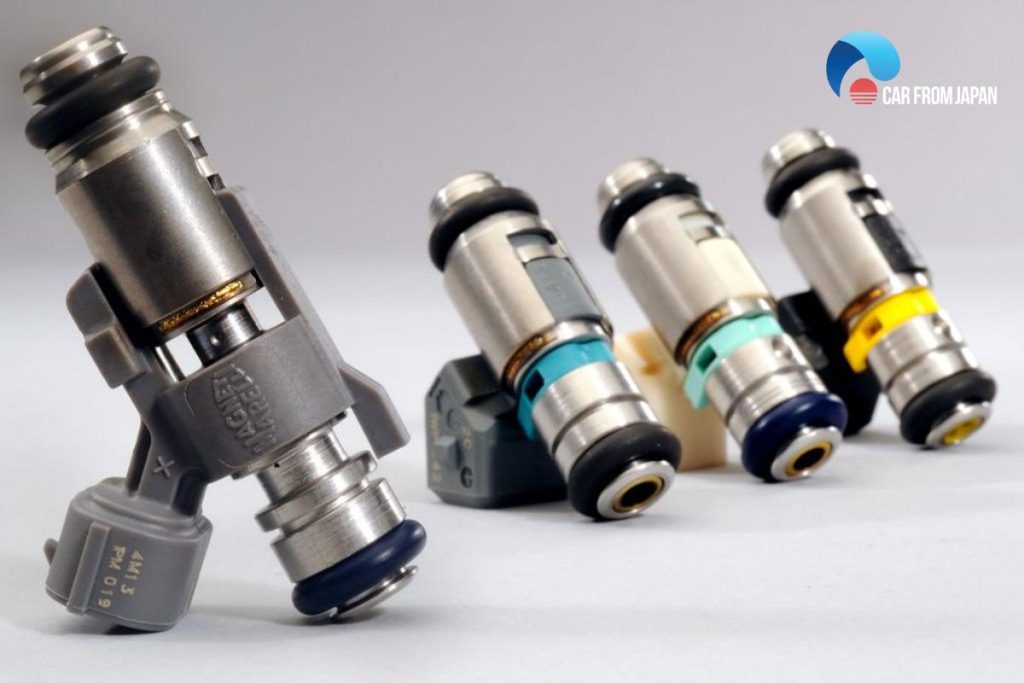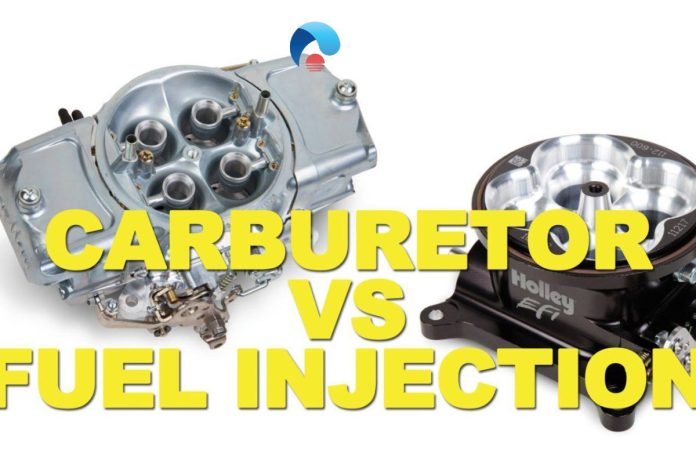Car enthusiasts always have different opinions about the carburetor vs fuel injection debate. Some people think that only a carburetor does the engine performance justice while others are convinced with the utility of the fuel injection.
So which one is the best option for you? Let’s follow along with Car From Japan!
Contents
- Carburetor vs Fuel Injection: What Are They?
- Carburetor vs Fuel Injection: The Merits and Demerits
- Carburetor vs Fuel Injection: Which One Is Better?
- FAQs on Fuel Injection System vs Carburetor
- Which system is more fuel-efficient: carburetor or fuel injection?
- Which system produces fewer emissions: carburetor or fuel injection?
- Can you retrofit a carbureted engine with fuel injection?
- Which system is more common in modern vehicles: carburetor or fuel injection?
- Can you switch between carburetors and fuel injection on the same vehicle?
- Which system is more adaptable to performance upgrades and modifications?
- Do carburetors or fuel injection systems require more extensive tuning for optimal performance?
- Final Words
Carburetor vs Fuel Injection: What Are They?
The carburetor and fuel injection are the systems that feed fuel and air into the engine cylinders. The combustion of gas releases energy into the pistons and combustion chambers.
The early carburetors used to utilize air flow or fuel vapors for ignition. The later versions used a different principle and supplied the same amount of air and fuel into the intake.
This system can’t monitor the air-to-fuel ratio for individual cylinders. But, carburetors are long-lasting and are widely used in racing cars.
The carburetor system lost its popularity in the early 1990s and fuel injection emerged into the scenario.
The fuel injection system is available in both mechanical and electronic versions and for both diesel and gasoline engines.
There are two different types – port fuel injection and direct injection systems. The second one is the advanced version that can handle two- or four-stroke engines and deliver fuel directly into the cylinders.
Based on the engine load conditions, this system will allow you to perfectly calculate the amount of fuel and air required and then release it to the cylinders. It will constantly adjust the amount based on the latest engine report.

Carburetor vs Fuel Injection: The Merits and Demerits
The systems have their pros and cons. You can find out the better option by comparing their functionality against several parameters.
Power and Performance
A fuel injection system with electronic controls provides more accurate results in terms of delivering air and fuel into the cylinders.
As it can supply the required amount, the engine functions at its optimum power and provides the best performance.
On the contrary, carburetors can’t calculate the accurate amount. They cannot adjust when there is a change in the atmospheric pressure or fuel temperature.
SEE MORE: Learn about the Types of Car Engines
Emissions and Fuel Economy
Again, the injection system wins in this sector. It can precisely calculate the required amount of fuel and air and adjust it according to the changes in several parameters, resulting in less fuel consumption, higher fuel-efficiency, and fewer carbon emissions.
Carbonators can’t yield the same results because they deliver the fuel-to-air ratio on an average, not subject to the engine conditions.

Maintenance Costs
The carburetor system will have the upper hand in this section. You can even rebuild the entire carburetor system in your garage!
All you need are some simple hand tools, a can of carburetor cleaner, and some spare parts.
On the other hand, fuel injection is a complex system. If the system burns out, you will need outside help to tow the car to a repair shop. Besides, repairing an injection fuel system requires professional skill.
Carburetor vs Fuel Injection: Which One Is Better?
In general, it seems that fuel injection is the better option.
Although most small engines use the carburetor system for its simplicity and cheap prices, and less maintenance costs, it is the perfect choice for modern vehicles.
To give you a more comprehensive overview for the difference between carburetor vs fuel injection, here is a table for your reference.
| Feature | Carburetor | Fuel Injection |
| How it works | Mixes air and fuel using the Venturi effect. | Electronically controlled injectors spray fuel. |
| Fuel delivery | Less precise, relies on gravity/vacuum. | Highly precise, controlled by ECU. |
| Fuel efficiency | Lower | Higher |
| Emissions | Higher (less complete combustion) | Lower (more complete combustion) |
| Performance | Can be inconsistent, sensitive to conditions. | Consistent, improved throttle response + power. |
| Cold starts | More difficult, requires choke. | Easier and reliable. |
| Altitude/Temp | Sensitive, requires manual adjustment. | Automatically adjusts. |
| Complexity | Simpler design. | More complex (electronics and sensors) |
| Cost (Manufacturing / Repair) | Lower | Higher |
| Maintenance | Prone to clogging | Less frequent, but more specialized. |
| Reliability | Can be temperamental. | Very reliable once properly set up. |
| DIY friendly | More accessible for basic repairs or tuning. | Less accessible, often requires specialized tools/knowledge. |
| Common usage | Older vehicles, small engines (lawnmowers, etc.). | Modern vehicles, motorcycles, high-performance engines. |
FAQs on Fuel Injection System vs Carburetor
Which system is more fuel-efficient: carburetor or fuel injection?
Fuel injection is generally more fuel-efficient than carburetors.
It delivers fuel with greater precision, optimizing the air-fuel mixture for improved combustion, which results in better fuel economy.
Which system produces fewer emissions: carburetor or fuel injection?
Fuel injection tends to produce fewer emissions compared to carburetors.
It allows for precise control over the air-fuel mixture, leading to cleaner and more efficient combustion, which reduces harmful emissions.
Can you retrofit a carbureted engine with fuel injection?
It is possible to retrofit a carbureted engine with a fuel injection system.
This conversion can improve fuel efficiency, emissions, and overall performance. However, it can be a complex and costly process.
Which system is more common in modern vehicles: carburetor or fuel injection?
Modern vehicles almost exclusively use fuel injection systems due to their advantages in fuel efficiency, emissions control, and performance.
Carburetors have become obsolete in new car production!
Can you switch between carburetors and fuel injection on the same vehicle?
Converting a vehicle from carburetion to fuel injection or vice versa is possible but involves significant modifications to the engine and its control systems.
It’s typically done as part of customizations or engine swaps by experienced mechanics.
Which system is more adaptable to performance upgrades and modifications?
Fuel injection systems are more adaptable because they offer precise control over fuel delivery and can adjust to changes in engine parameters.
Do carburetors or fuel injection systems require more extensive tuning for optimal performance?
Carburetors require more extensive tuning to achieve optimal performance compared to fuel injection systems.
Fuel injection systems can adjust automatically to varying driving conditions, reducing the need for constant tuning.
Check out this video from Summit Racing to learn what is the difference between carburetor and fuel injection!
Final Words
In the debate of carburetor vs fuel injection, fuel injection emerges as the superior choice for modern vehicles. It offers precise fuel delivery, improved efficiency, reduced emissions, and better performance compared to carburetors.
While carburetors have a historical significance, fuel injection’s advanced technology aligns with contemporary demands for cleaner, more fuel-efficient, and environmentally responsible vehicles.
As automotive technology continues to evolve, fuel injection remains at the forefront, an option for optimizing both engine performance and environmental impact!




Very good tips please keep it up
this info has been so useful tanx a lot. i have been experiencing stumbling during acceleration but i never had a single idea of what could be the course to this. but with this info, i will ask my mechanic to check my fuel injector.
I have a Tata indigo 1.4 I want to change it to carburetor what do i need please which car headtop can i use.
Fuel injection for petrol engines is fine in new cars under warranty, but exorbitantly expensive to repair or replace. Fuel injection is not new, German aircraft were so fitted in the late 1930`s. Why is this system so expensive today ? as it has existed for 70 years.
Fuel injection (petrol) is not new, German aircraft were so fitted in the late nineteen thirty`s. Why then is a fuel injection system so expensive to repair or replace ? as it has been around for over 70 years.